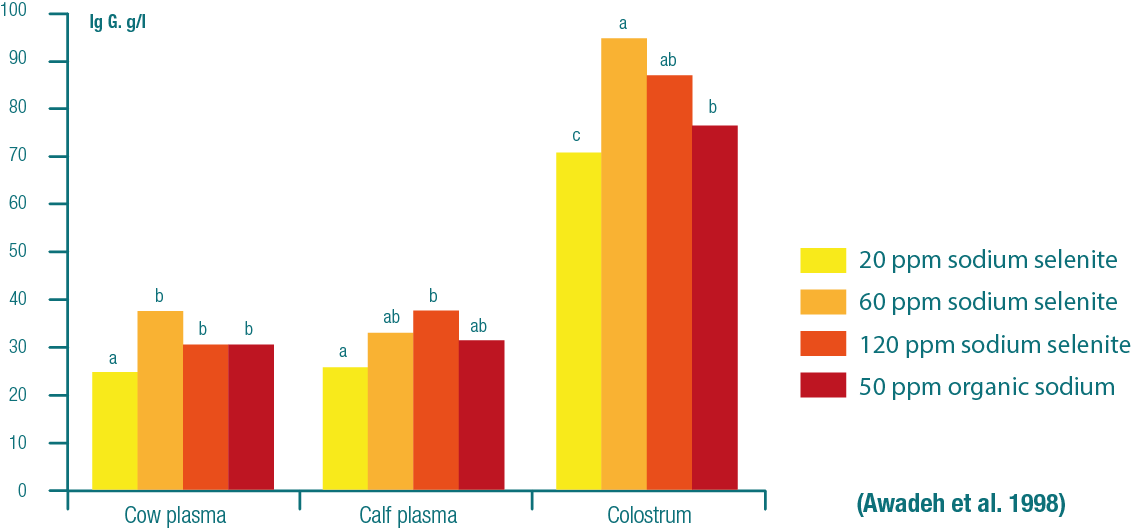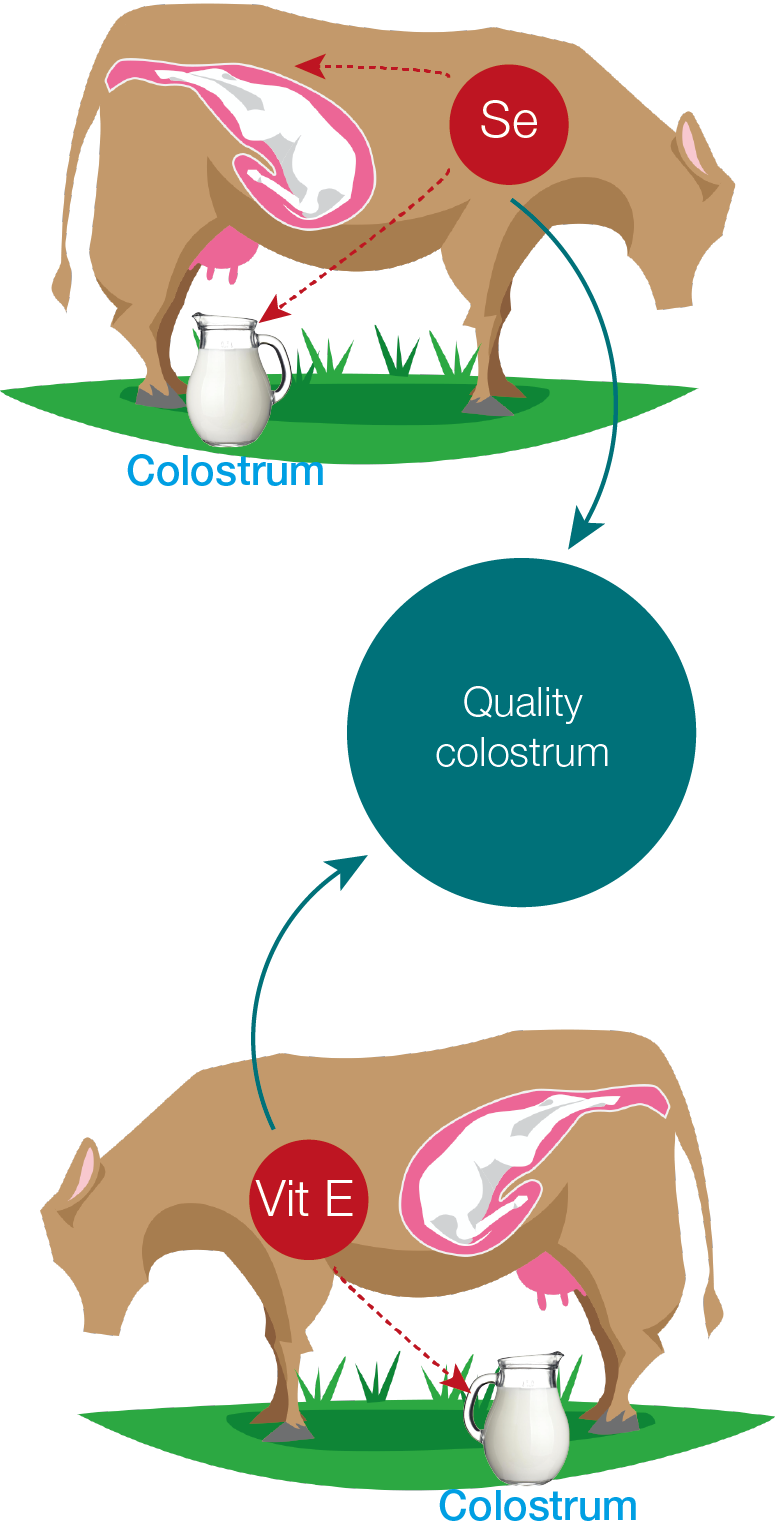Preparation for calving
This period, also known as « calves weaning », is important in the management system. The calf’s health, the calving progress and the apparition or not of pathologies in the mother and its reproduction will depend on its good management.
Quality of the calving preparation and the colostrum
Colostrum is the first feed for the new-born calf, supplying energy, immunity and minerals and vitamins. Its composition depends on the quality of the preparation for calving and on the feed composition during this period.
Beyond these basic characteristics that have to be carefully controlled (proteins, energy in the ration, deworming); a particular attention must be paid to the mineralisation approach.
Indeed, studies have confirmed placental transfer of the selenium from the mother to the calf (Weiss et al., 1984; Campbell et al., 1990). This transfer is more successful than the transfer through the milk where only a small quantity of selenium ingested by the mother is found (Koller et al., 1984).
Moreover, a mother that receives selenium supplementation within the two months before calving will have her serum, colostrum and the calf serum enriched in antibodies (Swecker et al, 1995; Awadeh et al, 1998).

A study has shown that deficiencies in trace elements in the mother could affect the transfert of the immunity to calves (Enjalbert, 2006).
10325 animals from 2080 herds have been blood sampled. Plasmatic dosages of copper (Cu), Zinc (Zn), and glutathione peroxidase (GSH-Px, representative enzyme of the dose of selenium in the blood) have been carried out. Data have been compared to those from healthy herds.

Close relative risks for disorders in calves linked to measurements of levels of Cu, Zn and Se from the mothers (Enjalbert 2006)
Calves from mothers with low blood levels of Cu have, for instance, 3.63 times more risks of having diarrhoea than calves from mothers with normal levels.
The risk of having a still born calf is 30.77 times higher for calves from mothers with deficient levels of GSH-Px than calves with normal levels.
Deficient levels from mothers deficient in Cu, Zn and Se are strongly linked to growth delays in calves, and to vaccine failure.
Let’s now have a look at the pair selenium/vitamin E: the latest will boost the mothers’ immunity before calving and therefore enrich the colostrum in antibodies intended to the calf at birth. It acts in synergy with prenatal vaccinations when necessary.

Impacts of a non-adapted calving on mothers
Trace elements and vitamins will be exported to the foetus, the colostrum or in the placenta and foetal membranes at calving. This strongly decreases the mother storage.
Such deficiencies or sub deficiencies can lead to dysfunctions of the immune system, the antioxidant system therefore increasing the risk of pathologies around calving such as dystocia (difficult calving), retained foetal membranes, metritis.
Every issues of this type will thus delay post-partum cycle, therefore increasing the calving-calving interval.
For more information on products that we have, please click here :
Sources :
- AWADEH, F.T., KINCAID, R.L., JOHNSON, K.A. Effect of level and source of dietary selenium on concentrations of thyroid hormones and immunoglobulins in beef cows and calves. J. Anim. Sci., 1998, 76, 1204-1215
- CAMPBELL, D.T., MAAS, J., WEBER, D.W. et al. Safety and efficacity of two sustained-release intrareticular selenium supplements and the associated placental and colostral transfer of selenium in beef cattle. Am. J. Vet. Res., 1990, 51, 813-817
- KOLLER, L.D., WHITBECK, G.A., SOUTH, P.J. Transplacental transfer and colostral concentrations of selenium in beef cattle. Am. J. Vet. Res., 1984, 45, 2507-2510
- SWECKER, W.S., THATCHER, C.D., EVERSOLE, D.E. et al. Effect of selenium supplementation on colostral IgG concentrations in cows grazing seleniumdeficient pastures and on postsuckle serum IgG concentration in the calves. Am. J.Vet. Res., 1995, 56, 450-453
- WEISS, W.P., COLENBRANDER, V.F., CUNNINGHAM, M.D. Maternaltransfer and retention of supplemental selenium in neonatal calves. J. Dairy Sci.,1984, 67, 416-420
-
Enjalbert F., Lebreton P., Salat O., 2006, Effects of copper, Zn and selenium status on performance and health in commercial dairy and beef herds : Retrospective study, J.Anim. Physiol. Anim. Nutr., 90 : 459-466
 Contact
Contact Export
Export